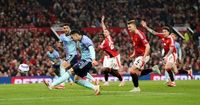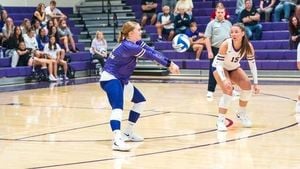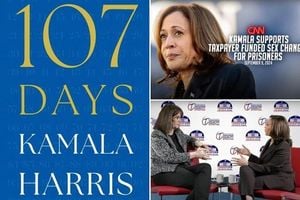The Premier League is back in full swing, and the anticipation is palpable as the world’s most-watched football league embarks on its 2025/26 campaign. This season isn’t just about the action on the pitch, though—there’s a seismic shift brewing behind the scenes that’s set to reshape the English football landscape. With a voluntary ban on betting sponsors looming, club finances, transfer strategies, and even the look of those iconic shirts are about to change dramatically.
As the new season kicked off on August 15, 2025, fans were already buzzing about the upcoming changes. The Premier League, in a move agreed upon with the Department for Culture, Media and Sport and the UK government, announced that from the 2026/27 season, no club will be allowed to display betting brands on the front of their shirts. This historic decision—first revealed back in April 2023—marks the league as the first in the UK to adopt such a voluntary ban, targeting the most prominent advertising space in football. The aim? To reduce the exposure of gambling brands, particularly among young fans and vulnerable groups, while still allowing some branding on sleeves, pitch-side LEDs, and in club publications.
The financial repercussions are already the talk of club boardrooms. Currently, 11 Premier League clubs have sportsbooks as their master sponsors. According to The Sponsor, the impact will be eye-watering for some, with revenue drops of up to 52% expected. Aston Villa, for example, is set to see its monthly income from bookmakers fall from 23.2 million euros to just 12.7 million—a jaw-dropping 45% decrease. Wolverhampton faces an even steeper decline, with sponsorship revenue projected to tumble by 52% from 9.8 million euros to 4.7 million. Nottingham Forest and Brentford aren’t far behind, bracing for losses of 50% and 47% respectively. The list goes on: Everton’s revenue drops by 29%, West Ham by 33%, Crystal Palace by 33%, Fulham by 39%, Sunderland by 32%, and Bournemouth by 31%. Burnley’s numbers remain undisclosed, but the trend is clear.
Clubs have until the end of the 2025/26 season to wrap up or renegotiate these lucrative deals. The challenge now? Finding new partners from different industries willing to pay similar sums—a tall order in today’s market. Some club executives are openly worried, while others see a chance for fresh, innovative commercial arrangements. Will tech giants, streaming services, or even eco-friendly brands step up to fill the void? Only time will tell, but the next 12 months promise a whirlwind of negotiations and, perhaps, a new era in football sponsorship.
Meanwhile, the transfer window has been nothing short of explosive. Manchester United, reeling from a disappointing 15th-place finish last season—their lowest ever in the Premier League era—have wasted no time in overhauling their squad. Under the watchful eye of new manager Ruben Amorim, the Red Devils have brought in attacking reinforcements: Benjamin Sesko, Matheus Cunha, and Bryan Mbeumo. “We needed firepower up front, and these signings give us just that,” said a club spokesperson, echoing the optimism rippling through Old Trafford.
But United’s ambitions don’t stop there. With Brighton’s Carlos Baleba declared “not for sale,” United have reportedly turned their attention to Douglas Luiz, the Brazilian midfielder currently at Juventus. Nottingham Forest is also keen on Luiz, who joined the Italian giants for £42 million last summer after a stellar spell at Aston Villa—where he netted nine Premier League goals in his final season. With Premier League experience and a reputation as a midfield dynamo, Luiz could be the missing piece in Amorim’s puzzle. “Luiz would make sense for United, who are looking for players with Premier League experience that can make an immediate impact,” noted TBR Football.
Elsewhere, Chelsea fans are buzzing about their own Brazilian wonderkid. Estevao, ranked number 10 in FourFourTwo’s list of the world’s most exciting teenagers in 2024, has finally arrived at Stamford Bridge after a year-long wait. The 18-year-old forward, who made his senior debuts for both Palmeiras and Brazil before turning 18, brings a fearless, risk-taking style to the Blues’ frontline. “That comes from my dad,” Estevao told FourFourTwo. “He’s always told me, ‘Never stop being yourself’. If I make a mistake during play, I don’t have time to dwell on it. You’ve only got seconds to react, because at any moment, the ball could be at your feet again and you’ve got to be ready to do something with it.”
Estevao’s stats back up the hype: 83 senior appearances and 27 goals for Palmeiras before his move, plus four senior Brazil caps before his 18th birthday. Chelsea fans got their first glimpse of his talents when he scored in a pre-season friendly against Bayer Leverkusen earlier this August. With manager Enzo Maresca at the helm and a new generation of talent emerging, the Blues are eager to see if Estevao can light up the Premier League when they open their campaign against Crystal Palace at Stamford Bridge.
Arsenal, meanwhile, are itching to end their 22-year wait for a Premier League title after finishing second for three straight seasons. They’ve added serious reinforcements, including goalkeeper Kepa Arrizabalaga, defender Christian Norgaard, winger Noni Madueke, and striker Viktor Gyokeres—one of Europe’s hottest properties. The Gunners will be aiming to hit the ground running, especially with their unbeaten run in the last five league matches against Manchester United giving them a psychological edge.
The season’s opening blockbuster sees Manchester United hosting Arsenal at Old Trafford on Sunday, August 17. The match, which starts at 9:00 PM IST, will be broadcast live in India on JioHotstar and Star Sports Select channels. Historically, these two giants have clashed 66 times in the Premier League, with United edging the rivalry with 26 wins to Arsenal’s 21, and 19 draws. But recent history favors the Gunners, who haven’t lost to United in their last five league encounters.
With so much at stake—on the pitch and off it—this Premier League season promises drama, intrigue, and perhaps a glimpse into football’s commercial future. As clubs adapt to new sponsorship realities and fans cheer on fresh faces, the only certainty is that the ride will be as unpredictable as ever. The action is underway, and all eyes are on England as the world’s game takes another bold step forward.





